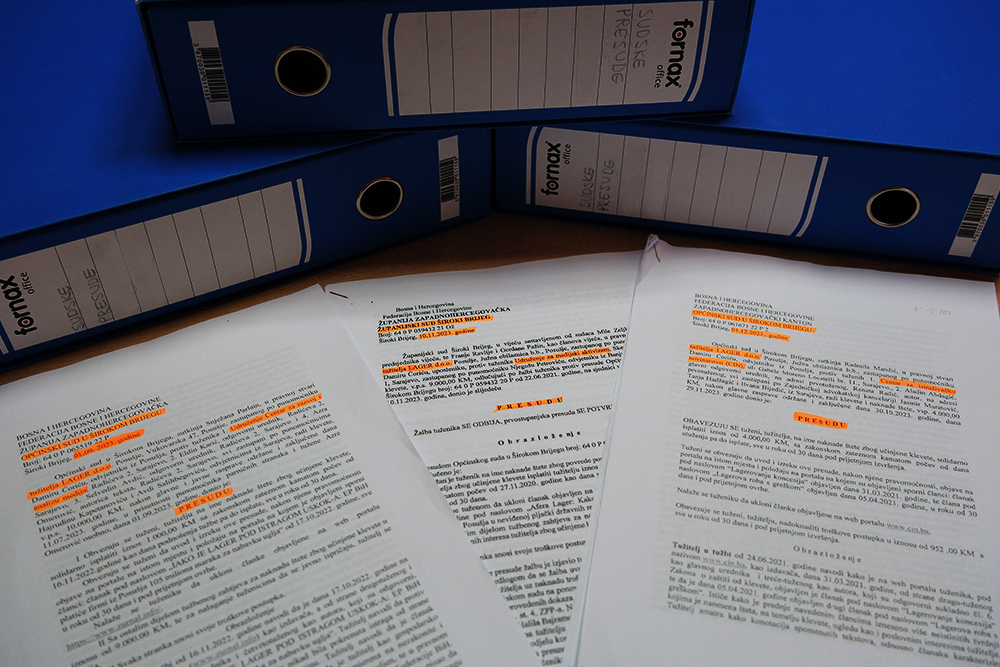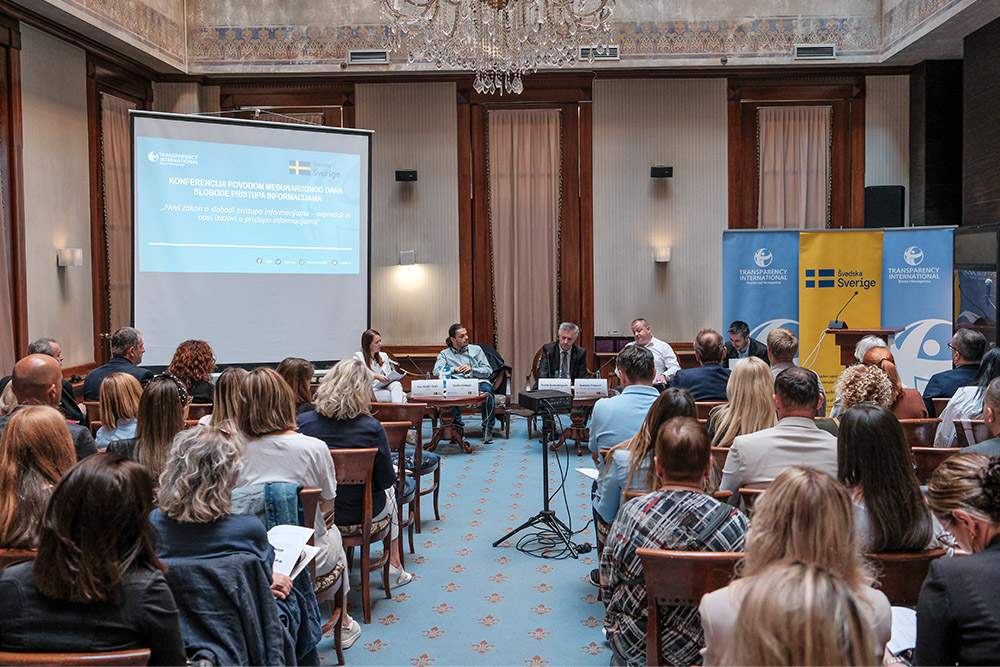Among the stalls at the Bihać market, we find Ibrahim Hasanagić offering his goods. He’s greeting customers who stop by, answering questions about the clothes and other little things he sells, going through coins to return the change.
But Hasanagić should be living a completely different life. According to medical records, he has been officially blind since 1993 and needs a living assistant on a daily basis. Against this background, in 16 years he received nearly 400 thousand marks from the FBiH budget. He is one of the disabled veterans of war who passed the review, which the Government of the Federation of Bosnia and Herzegovina (FBiH) has been conducting since 2010. During the review, about three thousand war veterans lost the right to disability benefits because the disability assessment review boards did not accept their injury findings. At the same time, review boards accepted the suspicious medical records of war veterans, mostly without checking their actual health conditions, even though they were legally obliged to do so.
“My papers are my defense. The institutions will decide how disabled I am”, said Hasanagić to CIN journalists.
Just as the disability assessment review board accepted his papers, without questioning their veracity, it refused to accept papers of Seid Boškailo from Mostar, the papers based on which he had a 70% disability rating until 2005.
“I have five sons. At a most difficult time of raising my children, my disability compensation of BAM 230, which meant a lot to me at the time, has been revoked“ said Boškailo.
Ministry for issues of the veterans and disabled veterans of the defensive-liberation war spent more than BAM 21 million on the review, but it failed to detect all fake disabled war veterans. The disability assessment review boards of the Medical Expertise Institute (the Institute) participating in the review did not check every disabled person in detail, claiming that the Ministry did not provide them with diagnostics and specialists for such a task.
Although at least 150 people have been convicted since the beginning of the review for transgression in exercising the rights of disabled veteran benefits, among the convicted there are still no doctors who issued false findings.
Review Without Reviewing
The unusual case of Ibrahim Hasanagić did not escape the attention of the Bihać disabled veterans. They reported him to the Association of the Disabled Veterans of Una-Sana Canton (USK), and the president of the Association, Ale Hošić talked to Berka Seferović, who was the Chair of the disability assessment review board at the time. She told him that based on Hasanović’s medical record his disability rating was appropriate, but she did not want to explain this to the CIN journalists.
“They have a story. I have evidence”, says Hasanagić, dismissing the reports and suspicions of his disability.
His evidence includes findings from the Zagreb Eye Clinic, the Russian Clinic in St. Petersburg, as well as the findings from the Sarajevo Eye Clinic, all of which say that he is blind. As a member of the RBiH Army, Hasanagić suffered a head injury following the detonation of a bombshell in August 1993, but he has no medical records of the examination he underwent immediately after the injury. Yet, in 2005, based on the findings presented he got a 100% disability rating, which earned him the right to the highest veteran disability compensation and add-ons of nearly two thousand marks a month. Both the clinics and the Ministry refused to provide more information about Hasanagić, invoking his right to privacy. Hasanagić underwent a review in 2015, and he appeared before the disability assessment review board accompanied by a person who helped him move, as noted in the review board’s findings, “giving the impression of a blind person”, a completely different image from the one found by CIN journalists at the Bihać market in late 2021.

“What he brought from the doctors is considered valid because these doctors have their licenses and this is what they wrote”, says Fehma Kovač, a member of the Institute’s disability assessment review board. “We did not have an eye specialist at the Institute and therefore we could not check an ophthalmologist’s findings. How do you expect a doctor to examine and see if someone is blind or not?”
Members of review boards blame this on the Ministry, which shunned from hiring specialists at the Institute. Although the law gives them the opportunity to refer disabled veterans for additional specialist examinations at the expense of the FBiH Government, the review board members say that the Ministry was not supportive of such a practice due to savings and speeding up the process.
Goran Grabovac from the Institute’s disability assessment review board says that the review boards reported cases of suspicious medical documentation to the Ministry, which told them that “that was not what they have asked them to do”.
The review board members believe that the review failed to “clear the field” and detect all suspicious disabled veterans. There were cases, they say, where the disability of the veterans obviously did not match the findings, and such cases were rejected without being reviewed. The scams of some, however, went scot-free.
“If I have a finding that says that the disabled person’s brain was damaged, and the review board here did not do an MRI – and we did not have that opportunity, how am I supposed to check whether it is true”, says Kovač.
Empathetic Review Boards
During the review, the disability assessment review board in the Una-Sana Canton did not find any problem with the status of Fehim Tirić from Cazin. As a member of the RBiH Army, he suffered a head injury in December 1992, and based on the findings of an ophthalmologist from 1998, he got the status of a physically disabled veteran of the first category, with a 100% disability rating. However, according to the degree of his visual acuity from the findings, he should not be in this group of disabled people, because his vision is not below 0.05, which is a legal requirement for category I.
When CIN reporters first met him in Cazin, Tirić was walking on his own, without the help of a white cane or another person. Not giving the impression of a man who cannot see, he approached the car to extend his greetings.
He did the same the next day, when the journalists asked him for an explanation about his disability, although it is obvious that he can see and move on his own without any problems.
“Yes, I came on my own. My wife told me that there is a blue car near Hamo’s barn. I came. I know where the barn is”, said Tirić.
At the request of journalists, he brought from his house a decision of the Ministry confirming his 100-disability rating.
“I am a blind person”, he claimed, pointing to parts of the document: “Here, everything is written here.”
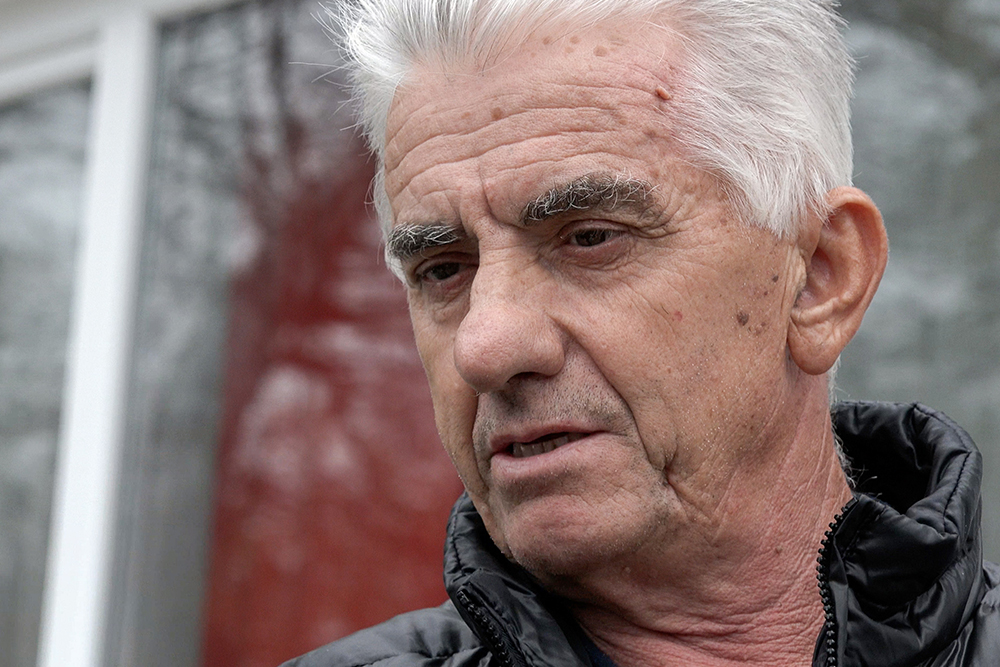
Tirić also pointed out the findings from the wartime based on which the disability assessment review board decided on his status in 2005. So far, he has received more than BAM 340,000 in disability benefits from the budget. He claims not to be afraid of the review because his disability was established based on documents.
“I am not afraid. I have not paid any doctor to give me this rating. I underwent review four times. The outcome is always the same”, says Tirić, who had never been referred to a new eye examination during those reviews. In the middle of the conversation, he admitted that a few years ago he underwent an operation in Slovenia, which “slightly improved his eyesight”. He did not submit the documentation from this operation to the disability assessment review board, nor does he think that he should have done so.
The president of the USK Association of Disabled Veterans, Ale Hošić, said that immediately after the war, doctors were empathetic towards the veterans, which may have led to inflated disability ratings.
“We demanded that the doctors and the Institute be fully responsible for that. The disabled veterans are not to be blamed for that”, said Hošić.
Doctors from the Medical Expertise Institute believe that most suspicious disabled veterans were granted the veteran disability compensation in 2004 when they filed their cases to the Ministry and former cantonal review boards for the first time after the war. At the time, the veterans obtained findings that were accepted by the cantonal review boards without verification.
“For example, there is a finding from 2006, and the review boards notes on the record that the finding is from the wartime”, says Goran Grabovac from the institute, who agrees that his colleagues in the 2000s unjustifiably granted higher disability ratings to war veterans.
His colleague Kovač says that current review boards are in a peculiar position because they have to challenge the findings of their colleagues.
“You look at a man and see that it [the finding] is not right, there is no scar!”, explains Kovač.
Although one can report fake disability beneficiaries to the Ministry by a single call, even war veterans rarely do so. Dozens of CIN interviewees felt that it is a futile effort because such disabled persons managed to obtain findings and documents that can hardly be declared invalid without of thorough audit.
The reports are checked by the competent inspectors of the Ministry, and this audit entails a review of the findings and military certificates, without checking the origin of the documentation. It is not known how many reports reached the Ministry this way or how many of them led to exposing fake disabled veterans because the Ministry did not want to share this information with CIN.
Journalists tried to access the war archives in order to inspect the findings based on which suspicious disabled veterans realized their rights, but the Ministry keeps this information secret. Hospitals also do not allow access to findings to protect patients’ privacy.
“Why would the place where I was injured be a secret?” That’s blowing smoke in one’s face”, says war veteran Nihad Sendić. He recalls that the disabled veterans insisted on publishing a list of all beneficiaries of veteran disability compensations to help detect more easily the suspicious ones, but it did not happen. Instead, in 2018, the Ministry published a single register of veterans, which contains no information on their disability status.
“We all know each other well. We all know how each of us sustained injuries in the war. We all know how long each of us fought during the war…”, says Sendić, who claims that publishing a list would have helped expose those who unlawfully benefit from disability benefits. Sendić believes that the institutions keep this information secret because they did not do their share of work in time i.e., they did not identify the truly disabled veterans and the fake ones.
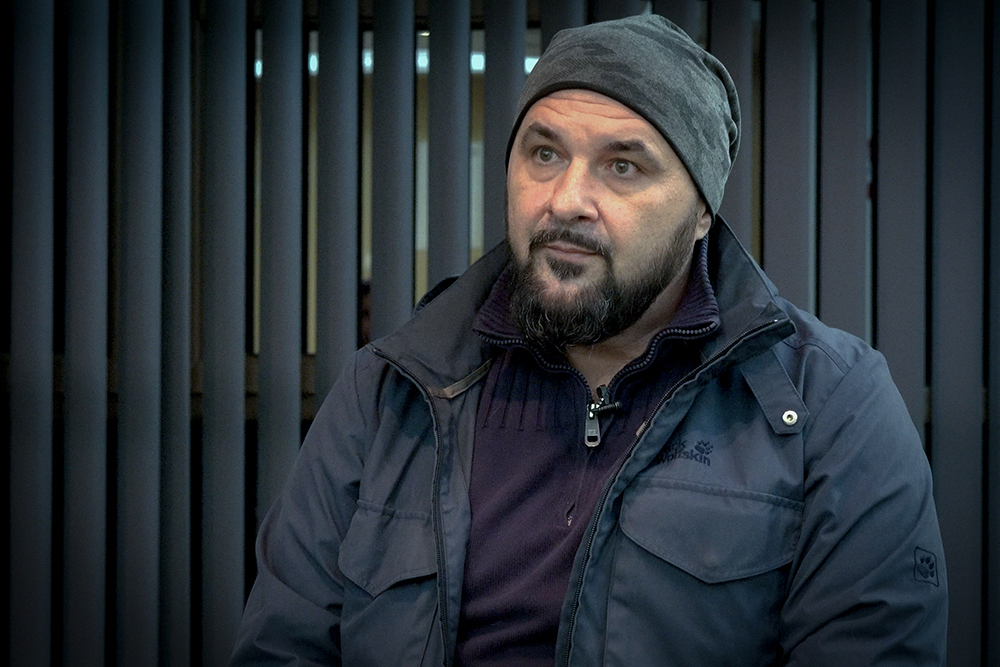
Although many problems identified during the review point to the FBiH Ministry, this institution offered no explanation to the public as to what has caused these problems and what the Ministry does to address them.
Mirza Terzo, assistant minister currently performing the duties of the minister, refused to speak to journalists, and the Ministry refused to provide information on the impact of the review, claiming they were largely destroyed during the 2010 veteran protests or disposed of after the expiry of the deadline for keeping the archive materials.
From the Review Board to the Court
In the first five post-war years, more than 90,000 veterans of the Armed Forces and the families of fallen soldiers were granted the right to monthly financial assistance. During the next 15 years, the number of beneficiaries of disabled veteran compensation exceeded one hundred thousand, and more than BAM 320 million a year were allocated from the budget. This prompted the FBiH Government to start reviewing the status of disabled veterans.
“The fact is that there are a lot of people who have not been here during the war, who were not even scratched. Tens of thousands of such people”, says former Minister Zukan Helez, during whose term of office the review began.
The rules stipulate that reviewers and disability assessment review boards shall review medical records and certificates issued by the Armed Forces of all war-time disability beneficiaries in order to confirm the status of the truly disabled veterans, and revoke the status of fake ones.
Former Minister Helez says that no court can annul a doctor’s finding and shifts the responsibility to doctors. “It was done by doctors whom I had no connection to. I could not influence it nor would I want to do it. I have neither strength nor power. No politician has.”
However, representatives of disabled veterans believe that the Ministry cooperated with the Medical Expertise Institute to reduce the number of beneficiaries and make quick savings on their backs.
“As people would say – break it, do it, I don’t care how you do it, just have it done”, said Hošić from the Association of Disabled Veterans. “The general post-war policy was that we are the burden of the government. And they would like to cross us out, says Hošić”
In the past ten years, the Ministry referred more than 51,000 disabled veterans to disability assessment reviews. More than 3,700 lost their benefits, and 12,600 had their disability rating reduced. All decisions of the review boards were based on the review and assessment of the authenticity of injury documents. However, the findings of many veterans do not properly document the injuries or the circumstances and consequences of the injuries because they were written in the speed and chaos of the war, so disabled veterans mostly resent the review boards for not having that in mind when they rejected such evidence. This practice is most resented by people of Cazin, as in the first three years of the review more than 300 of them had their disability ratings reduced.
“They threw my documents on the floor. That hit me. I said to them, ‘I came in, and if you won’t check the [papers], why don’t you check me out’?” “We have all the documentation and you are free to go” they told me, recalls Remzo Duraković, whose disability rating was reduced from 70 to 30%.
Referring to this example, Fehma Kovač, a member of the review board from the Institute, says that a proper review should entail new examinations for all disabled veterans: “It would cost the state a lot, but the proper selection would be made once and for all.”
After the review, Duraković was granted a disability compensation of BAM 49, only the seventh part of the amount he had been receiving earlier. After years of legal struggle, the review board referred him to additional tests, which confirmed his disability and proved the institutions wrong. Although he was damaged for more than 11 thousand BAM because he was receiving reduced disability compensation, the damage claim has not yet been paid to him.
The court also had to react in the case of Duraković’s comrade-in-arms Mehmed Kapić, who waited from the end of the war until 2020 for the review board to take into account his injury of the right shin. According to the ruling of the Bihać Cantonal Court ordering the Ministry to reassess Kapić’s disability rating, the original decision was illegal due to a violation of the Administrative Procedure Act. Namely, according to the Law on the Disability Assessment Review, the injured parties were not allowed to appeal the decisions of the Ministry.
This is why the Constitutional Court of FBiH in 2013 ordered that disabled veterans be given the right to appeal. Eight years later, the FBiH Parliament did not vote to amend the Law on Disability Assessment Review, nor has it been put on the agenda.
Seven thousand disabled veterans sued the FBiH Ministry before the Supreme Court of FBiH, claiming that they were adversely affected by the disability assessment review. More than five thousand won the cases and had the decisions reducing their disability ratings revoked. According to the court rulings, at least 26 million marks should be paid retroactively to the injured parties.
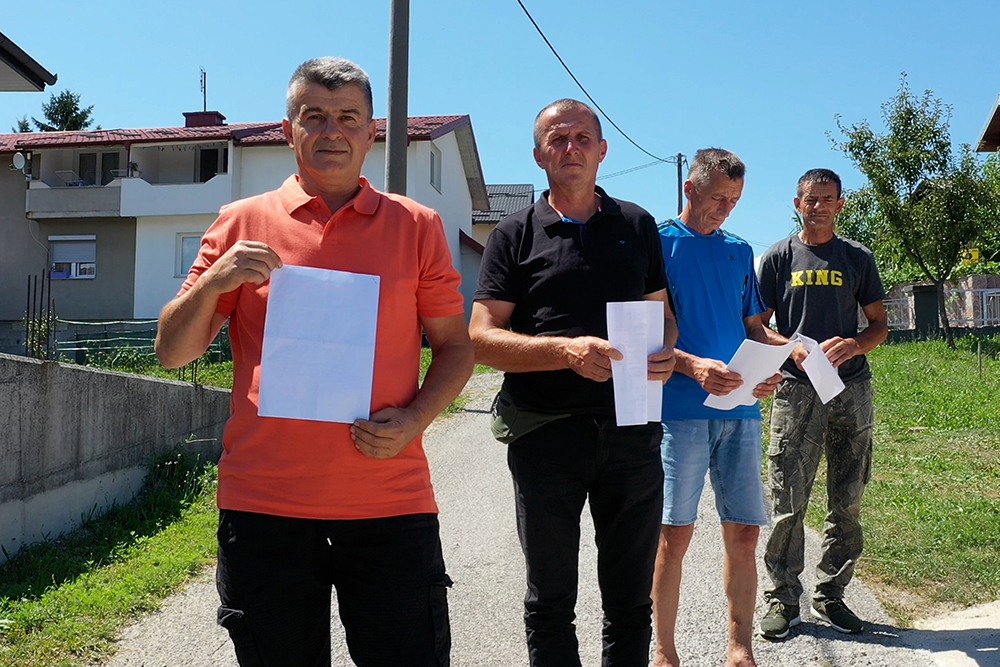
As a result of the disability review and the death of veterans, the number of beneficiaries of veteran disability benefits in the FBiH today is lower by about 20 thousand – almost a fifth. Thus, the annual allocations for disability benefits decreased by almost 60 million marks.
“I have a feeling that the FBiH Government would like to have one big helicopter. An old Russian helicopter that can receive all disabled veterans. And they’d wish for a breakdown to happen. Can you imagine how big a relief would that be for the budget? Huge. Good for them, good for everyone. More money”, says Nihad Sendić, a war amputee from Bihać.
Doctors Untouched
Although disability assessment review boards openly speak about the disputed findings of disabled veterans, according to judicial institutions, in the past decade, no doctor in the FBiH has been convicted of counterfeiting the findings. Findings signed by doctors from Herzegovina and Central Bosnia were most often investigated and examined, but prosecutors did not go beyond that.
The head of the Mostar war hospital, Miljenko Lugonja, was reported for this crime, but he denies that doctors were involved in scandals related to issuing false findings to the disabled veterans. He claims that the counterfeiters perfectly copied their seals, and worked in cooperation with the disability assessment review boards.
“Call a hundred people and have them bring their findings. Among those hundred, there must be some of the fake ones. And if I in my finding inflated someone’s rating by a 10%, that’s my discretion”, says Lugonja, who claims that the authorities can establish the truth by checking the papers issued by military units for each disabled veteran, not just medical records.
At least four more of his colleagues have been reported for counterfeiting the findings, and against four Tuzla doctors charges have been pressed and later dropped due to lack of evidence. None of these doctors responded to calls from CIN journalists.
For the president of the FBiH Association of the Disabled Veterans, Esad Delić, disability assessment review is a populist move by the government, which, as he claims, had made many wrong and unfounded decisions. According to him, the Ministry could have checked the suspicious disabled veterans reported to them by the citizens instead of spending millions on the review.
“If someone thinks that we are the fake ones, they have a phone number to call. They can take pictures of us, film us! The review is not and cannot be over for these people”, Delić concluded.



